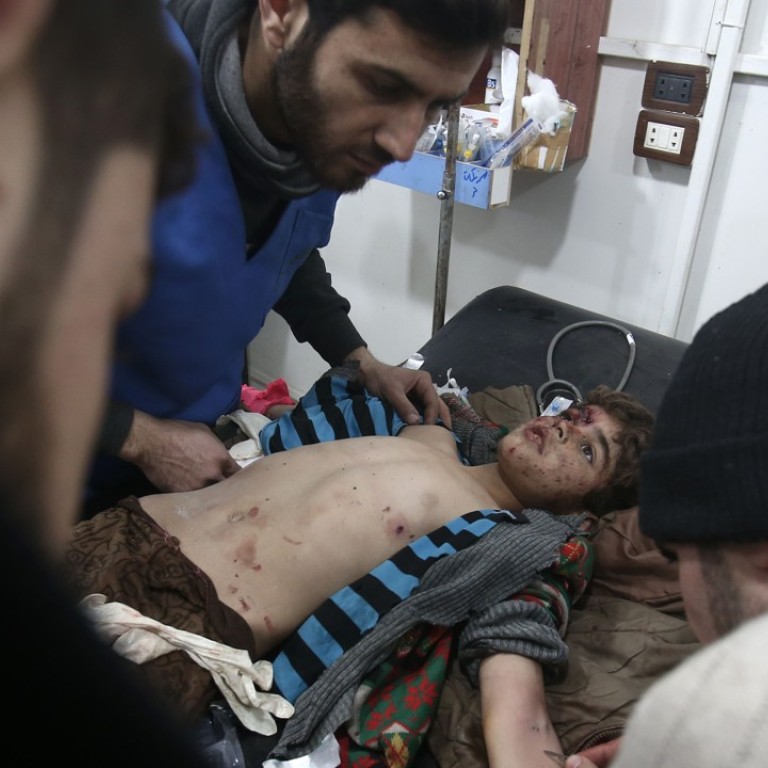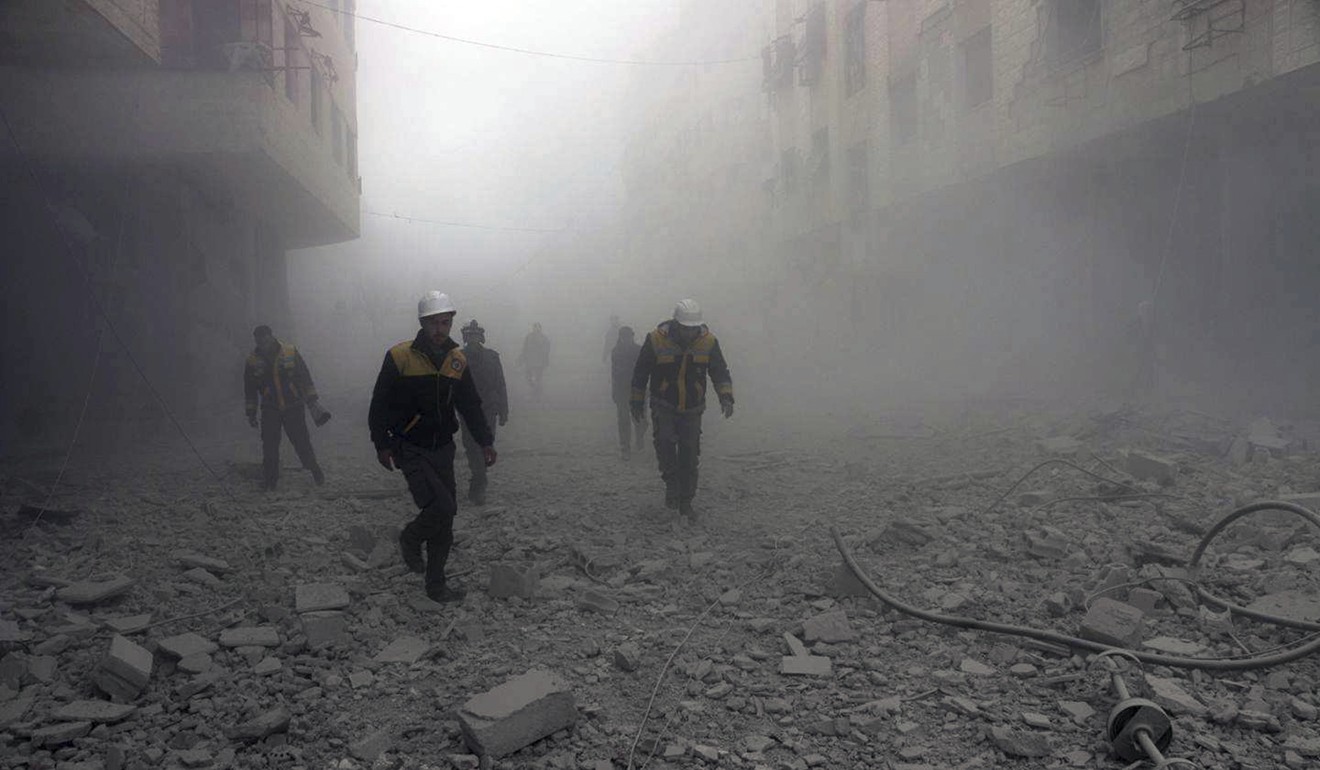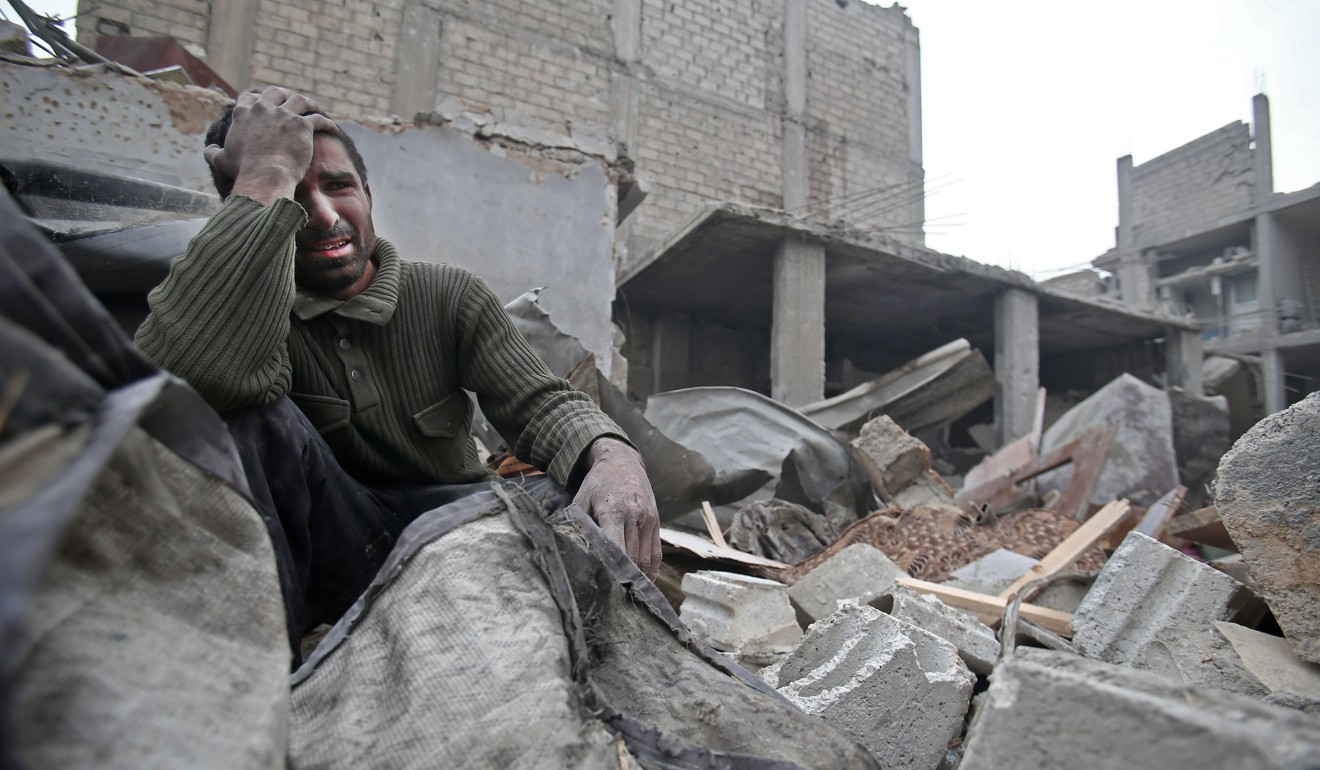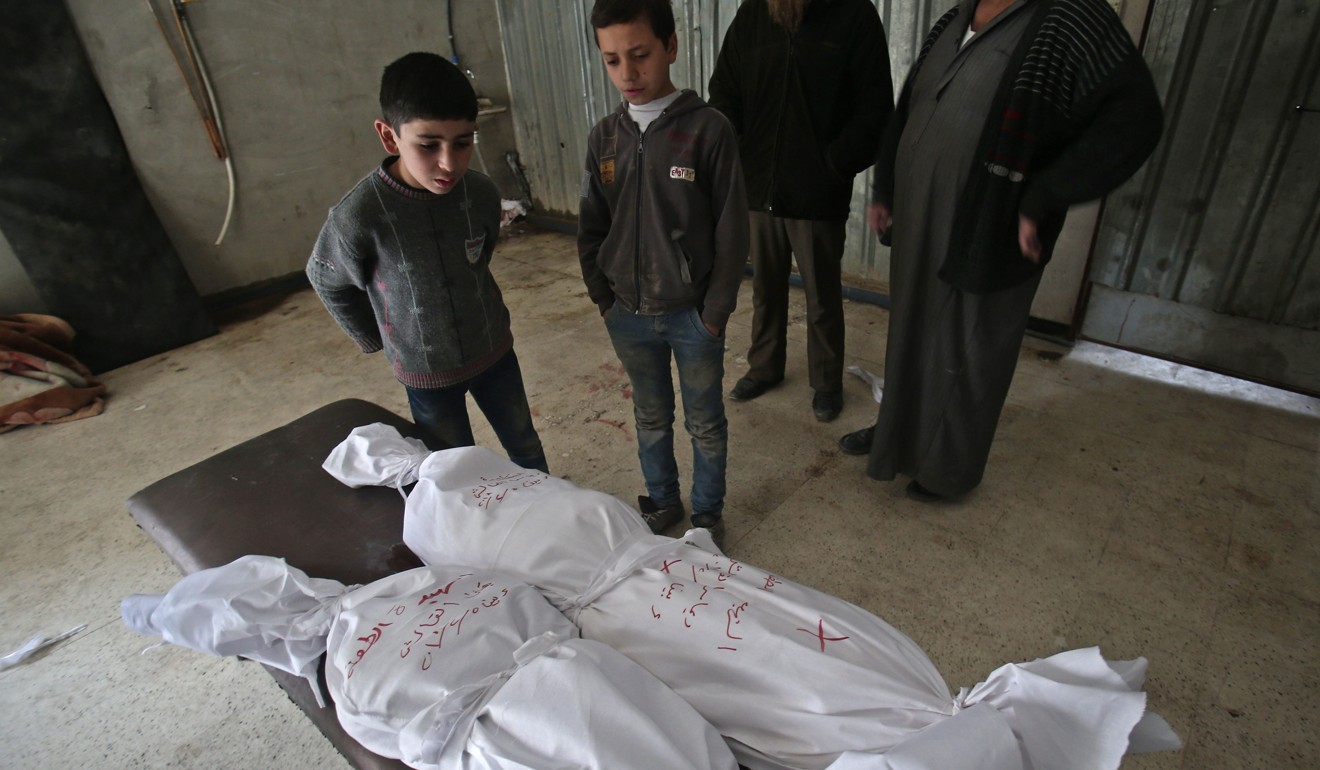
UN investigating latest reports of chemical weapons used by Syrian regime against rebels
The United States on Monday said there was ‘obvious evidence’ of multiple chlorine gas attacks in recent weeks
United Nations war crimes investigators on Tuesday said they were investigating fresh reports that chemical weapons were being used in rebel-held zones in war-ravaged Syria.
The UN Commission of Inquiry on the human rights situation in Syria voiced alarm that it had received “multiple reports – which it is now investigating – that bombs allegedly containing weaponised chlorine have been used in the town of Saraqeb in Idlib and in Douma in Eastern Ghouta”.
On Monday, bombardments by Syrian government forces killed 33 people in a rebel enclave near Damascus, as the seven-year conflict continued to exact a heavy price on civilians.
Residents across several Syrian battlefronts have reported escalating bombardment and have accused Syrian troops of deploying toxic chemicals against rebel-held zones.
The United States on Monday said there was “obvious evidence” of multiple chlorine gas attacks in recent weeks, including in the opposition-held enclave of Eastern Ghouta near Damascus.
Dozens of air strikes and artillery fire battered Eastern Ghouta, according to the Britain-based Syrian Observatory for Human Rights.

The deadliest raids on Monday hit a market in the town of Beit Sawa, killing 10 civilians including two children.
Another nine civilians, two of them children and one a local rescue worker, were killed in Arbin.
Eastern Ghouta is included in a de-escalation deal agreed last year by rebel ally Turkey and government supporters Iran and Russia.
But violence has ramped up there in recent weeks, and this month alone, chlorine is suspected of having been used on two occasions in munitions launched by the regime on Eastern Ghouta.
A third accusation of toxic gas use came from Idlib, an opposition-controlled province in the country’s northwest that also falls in a de-escalation zone.
Nearly a dozen people were treated for breathing difficulties on Sunday after Syrian government raids on the town of Saraqeb, the Observatory said.
Mohammad Ghaleb Tannari, a doctor in a nearby town, said his hospital had treated 11 people.


The US proposed a draft statement condemning the use of chemicals as a weapon, but Syrian government ally Russia added amendments that made no mention of the attack.
But in the end no statement was adopted.
US ambassador Nikki Haley slammed Russia for balking at a statement that she described as a “simple condemnation of Syrian children being suffocated by chlorine gas”. But Russian ambassador Vassily Nebenzia hit back. “It’s completely clear to us the goal is to basically accuse the Syrian government of chemical weapons use where no perpetrators have been identified,” he said.

.png?itok=arIb17P0)